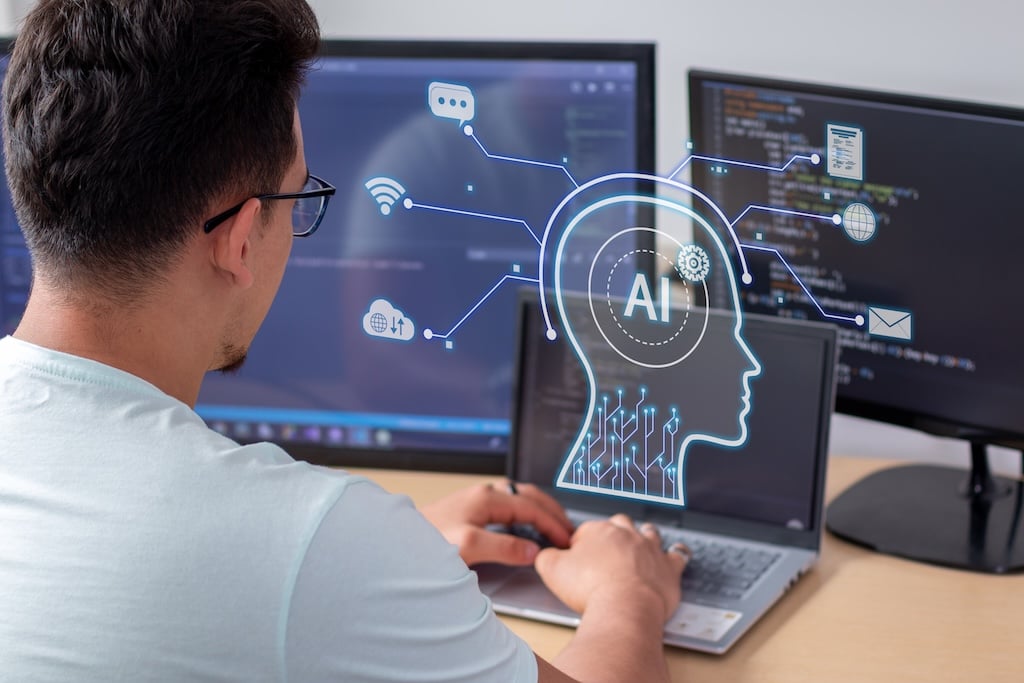Portland Accounting IT Solutions: Benefits of IT Management for CPAs
Proactive IT management is a strategic approach that anticipates and addresses potential issues in IT infrastructure before they escalate into...

Envision a busy lawyer rushing against the clock. But this time, they have a strong AI aide by their side instead of being bogged down in paperwork and research.
According to Goldman Sachs, AI may automate 44% of present legal work duties (the average for all industries is 25%). May it be curating initial drafts of motion or reviewing legal documents, AI tools are all about accuracy, efficiency, and saving time!
However, with an array of benefits comes ethical legal considerations of using AI tools.
This blog walks you through expert tips on ethically adopting AI tools for lawyers, benefits, and use cases. Let's get started!
From case management to curating briefs and contracts, legal professionals are using a wide range of AI tools to assist with their daily responsibilities.
Let's take a look at some of the top benefits of employing AI tools in the day-to-day activities of a lawyer.
Let’s face it: legal research and document review can be time-consuming. However, AI tools can analyze tons of case files in a fraction of the time it would take a human.
Think of having an AI assistant that quickly sifts through relevant case law or contracts. This means less time stuck in the paper chase and more time focusing on crafting strong arguments.
Even the most experienced attorneys are prone to making mistakes when working with huge sets of data. In such instances, AI algorithms assist in costly blunders by cross-checking data and flagging discrepancies.
Furthermore, AI-powered contract review systems can identify missing terms that humans may overlook. This increased accuracy helps you avoid missing details that could affect case outcomes.
AI solutions can reduce operational costs! Imagine fewer billable hours spent on repetitive tasks. This enables law firms to provide more competitive rates or devote resources to intricate legal matters.
Access to advanced AI-driven research and analytics at a lower cost is especially advantageous for single practitioners or smaller organizations. As a result, a wider range of clients can obtain high-quality legal services.
You really can not depend on your gut anymore. AI can sift through enormous amounts of data to find patterns and predict trends that affect case strategy.
Also, predictive analytics can look at past data to assess the probability that a case will win or not. Using data to take the guesswork out of planning gives your clients the best chance of a positive outcome.
From model bias to hallucinations, there are a number of risks associated with using AI tools in law. However, we have listed some of the expert-backed suggestions to help you stay ethically compliant.
Protecting customer data must be a top priority when implementing AI solutions. Consider AI systems as digital vaults; any intrusion could jeopardize the attorney-client privilege.
For instance, a company using an AI-powered document review system must make sure the platform has stringent access restrictions and end-to-end encryption. If you don't, you risk disclosing private information, which could lead to disciplinary action or a decline in client confidence.
Attorneys should carefully screen AI suppliers, confirming their adherence to applicable data protection laws, such as the GDPR or HIPAA.
When AI systems learn from historical data, biases may be unintentionally encoded.
For example, if the training data represents biased judicial conduct, an AI tool that predicts case outcomes based on past judgments may reinforce systemic disparities. Lawyers need to keep an eye out for potential biases and rigorously assess AI assistance.
The ethical need to advance justice is upheld when choices are made fairly by incorporating a variety of datasets and routinely assessing AI outcomes.
Effective use of AI necessitates a thorough comprehension of both its potential and constraints. A lawyer runs the risk of presenting faulty arguments if they naively rely on an AI-driven legal research tool without knowing its full extent.
You must continue professional development in AI, which includes learning about its methods and data sources. This ensures competence and empowers lawyers to explain AI-derived insights confidently to clients.
Clients should be informed about the usage of AI tools and how their case is being handled.
Being upfront about AI assistance, such as using AI for contract drafting or legal research, builds trust and clarifies the human oversight involved.
According to the American Bar Association's (ABA) Model Rules of Professional Conduct, it is the responsibility of the lawyer to make sure that the demeanor of any non-lawyer is consistent with that of the supervising lawyer
It is noteworthy that this criterion would apply to AI work and its products. Sixteen state bars in the US have addressed or intend to handle AI and legal ethics as of 2025.
Hence, AI tools are all set to change how legal services are provided at the practice level. AI automation at scale is aiding law firms that routinely perform similar types of legal work.
Looking for IT solutions for your law firm? Head out to Heroic Technologies. We offer tailored, secure, and compliant IT solutions for lawyers. Our expert team of legal software professionals shines at troubleshooting any software or AI tools your legal firm uses.
Contact us today to explore how our team of IT enthusiasts can help optimize your business!
Yes, it's acceptable to use AI technologies in law, but you must make sure to abide by ethical standards related to competence and privacy.
You must thoroughly evaluate AI-generated findings since AI can reflect biases from its training data. Always use your professional judgment and be conscious of any potential prejudices.
AI isn't about replacing lawyers but enhancing your work. It can handle repetitive tasks like research and document review. This will free you up to focus on strategy and client relationships.
Proactive IT management is a strategic approach that anticipates and addresses potential issues in IT infrastructure before they escalate into...

Remember when a simple password felt like enough to guard your digital kingdom? Those days are long gone. Industry research, including Verizon’s Data...

Picture this: It’s 2:00 PM on a Tuesday. You’ve just finished a heavy lunch, and now you’re sitting in a dimly lit conference room, or worse, staring...

When you think about compliance training, does your mind immediately picture massive corporations or those huge law firms with endless rows of desks?
Every industry must embrace the benefits of innovative solutions to stay ahead of the competition. That includes law firms, where traditional methods...

Legal compliance is no longer an added bonus for businesses; it’s a fundamental necessity. With increasingly complex regulations and hefty penalties...